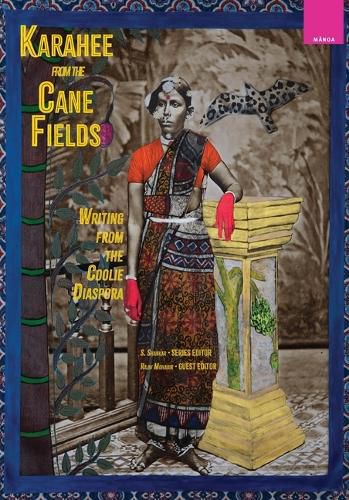Readings Newsletter
Become a Readings Member to make your shopping experience even easier.
Sign in or sign up for free!
You’re not far away from qualifying for FREE standard shipping within Australia
You’ve qualified for FREE standard shipping within Australia
The cart is loading…






Karahee from the Cane Fields: Writing from the Coolie Diaspora unifies the literature and culture of the global South Asian Labor Diaspora and how writers live within this identity. From the history of indenture in the 1830s to the 1920s, this racialized bondage replaced the Transatlantic slave trade and branded the servants of Empire as Coolie. The word Coolie comes from the dehumanization of the people under Imperial rule, turning them into a species of Cesaire's thingification.
During this period, the British displaced Indians--some by will and others by force--from the ports of Calcutta and Madras to the settlements and colonies in Fiji, Mauritius, Reunion, South Africa, Jamaica, Trinidad, Guyana, and Suriname. From these plantation communities of survival and resilience, the writers in Karahee from the Cane Fields explore their ancestral ties to land and indenture, and question what is the inheritance of the cane field, the cane-sap residue marking the descendants of this system of indenture?
It is here that emerging and less-well known voices in the field of Coolie Labor Diasporic studies gather together through poetry, fiction, nonfiction, translations, song, and graphic memoir. These narratives are more than the typical authors studied and overrepresented by academics who do not read writing from the Coolie Labor Diaspora past the 1990s. Instead of the often written about concern for their origins and cultural holdovers from their ancestral India, the writers assembled in this karahee, this mehfil of flavors, ask: What now?
$9.00 standard shipping within Australia
FREE standard shipping within Australia for orders over $100.00
Express & International shipping calculated at checkout
Karahee from the Cane Fields: Writing from the Coolie Diaspora unifies the literature and culture of the global South Asian Labor Diaspora and how writers live within this identity. From the history of indenture in the 1830s to the 1920s, this racialized bondage replaced the Transatlantic slave trade and branded the servants of Empire as Coolie. The word Coolie comes from the dehumanization of the people under Imperial rule, turning them into a species of Cesaire's thingification.
During this period, the British displaced Indians--some by will and others by force--from the ports of Calcutta and Madras to the settlements and colonies in Fiji, Mauritius, Reunion, South Africa, Jamaica, Trinidad, Guyana, and Suriname. From these plantation communities of survival and resilience, the writers in Karahee from the Cane Fields explore their ancestral ties to land and indenture, and question what is the inheritance of the cane field, the cane-sap residue marking the descendants of this system of indenture?
It is here that emerging and less-well known voices in the field of Coolie Labor Diasporic studies gather together through poetry, fiction, nonfiction, translations, song, and graphic memoir. These narratives are more than the typical authors studied and overrepresented by academics who do not read writing from the Coolie Labor Diaspora past the 1990s. Instead of the often written about concern for their origins and cultural holdovers from their ancestral India, the writers assembled in this karahee, this mehfil of flavors, ask: What now?